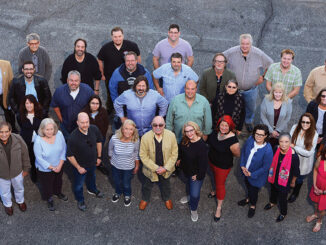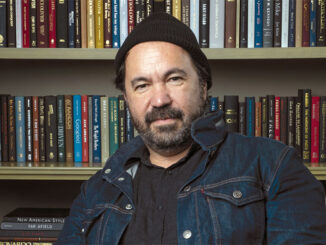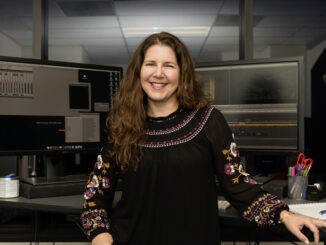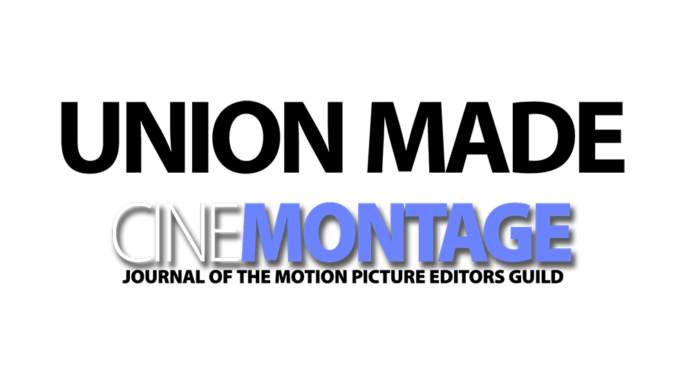
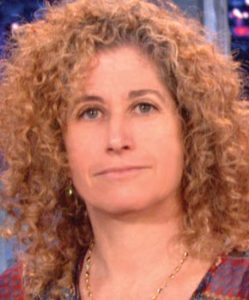
by Beth Stiller
Some people have a plan. I did not, do not, and am still not sure what I would like to be when I grow up. Oh, I am mostly grown, middle-aged, halfway to somewhere. Opportunities and luck drew me.
At college, I vacillated between science and the arts. After college, I returned to my parents’ home to save enough money to move to New York. While waiting for my Mustang to be serviced for the drive east, I took a walk. I got to talking to a man who owned a music recording studio. He asked me what field I was pursuing. I confessed I had studied literature and chemistry and had no idea. He offered to teach me audio engineering. I thought, “Why not?” I took my savings, put first and last on an apartment and showed up for volunteer work at the man-on-the-street’s studio.
The work was my first taste of riding technology to capture and enhance art. The studio produced music demos. Back then, the audio engineer punched in live edits on magnetic, quarter-inch, reel-to-reel tape. Another volunteer opportunity arose at a television station. A friend suggested television offered a better lifestyle than music. I took his advice. At the station, I carried equipment, drove the van and learned.
Soon, I was given a paid, entry-level position as master control operator. I switched on-air between pre-recorded programs and commercials. I was hand-cuing, rolling and audio/video switching, while simultaneously hitting a foot timer to note the time of day for the FCC log and minding the transmitter levels.
This station sold airtime. Clients hand-delivered shows and sat behind me, while according to their instructions, I switched between the playback of their three-quarter-inch cassette-taped shows and pre-recorded slide and cart, film or three-quarter-inch commercial reels. The station specialized in foreign-language programming, mostly Asian. Some clients’ English was poor, my Asian language knowledge non-existent. Cultures clashed when maintenance engineers–– good old boys who learned their trade in the military––patched porno feeds into extraneous master control room monitors. These monitors were a “distraction” when the clients, always male, avoided eye contact as we pantomimed when to switch between their show and commercial tapes. We did a lot of grinning.
On a live broadcast, we are the last point of departure and the last chance for quality control. We can protect the viewer from out-of-focus shots, incorrect video signals or miscued playback by identifying the problem in our preview monitors or scopes, and giving a heads up to the operators so that they can correct the problem before it hits air.
Once inside the local station, I learned to shade cameras, playback and record videotape, mix production sound, operate camera and manually edit, as well as direct. I was fortunate to have been able to taste many of the crafts and particularly enjoyed technical directing. Eventually, the station gave me the position. My first experience with organizing was at this station. The staff signed cards to be represented by the IBEW, a move which failed.
Around this time, I got laid off, and started a family with a South American, which was not in the plan—had I had a plan. Having been exposed to the Spanish language both at work and in daily life, my comprehension was fairly good, but I could not speak the language. So, in raising the children, I spoke only Spanish to them. In that way, I learned to speak the language as they did. Over time, I received more and more offers for freelance work.
Being bilingual gave me an advantage. Sports TV was expanding Spanish language coverage. A successful sports technical director (TD) programs the switcher to efficiently respond to random scenarios, be it replay, bumper to break, live action, internal advertising or packages. I was fortunate to have been part of the Los Angeles sports unit working as a technical director, when we voted to be represented by IATSE.
National TDs are members of all three unions: IBEW (CBS/Fox shows), NABET (NBC/ABC shows) and IATSE (production company-produced shows). TDs also serve as “crew chief.” The technical director leads the engineering team, and is the point person between engineering and production.
On a live broadcast, we are the last point of departure and the last chance for quality control. We can protect the viewer from out-of-focus shots, incorrect video signals or miscued playback by identifying the problem in our preview monitors or scopes, and giving a heads up to the operators so that they can correct the problem before it hits air.
I am presently working The Tonight Show with Conan O’Brien. We have perhaps the most sophisticated control room outside Asia. Over the years, I have received vital coaching from fellow technical directors and had luck. In an effort to give back, I am serving a second term on the Guild’s Board of Directors.
I have won five Emmy Awards for technical direction. This year I won as director of LA’s Best Live Special Event, the KTLA Rose Parade.
Is this what I want to be when I grow up? I’m thinking more along the lines of a Tibetan Buddhist “Mama Lama,” which might take another lifetime. But the joy is in the journey…


